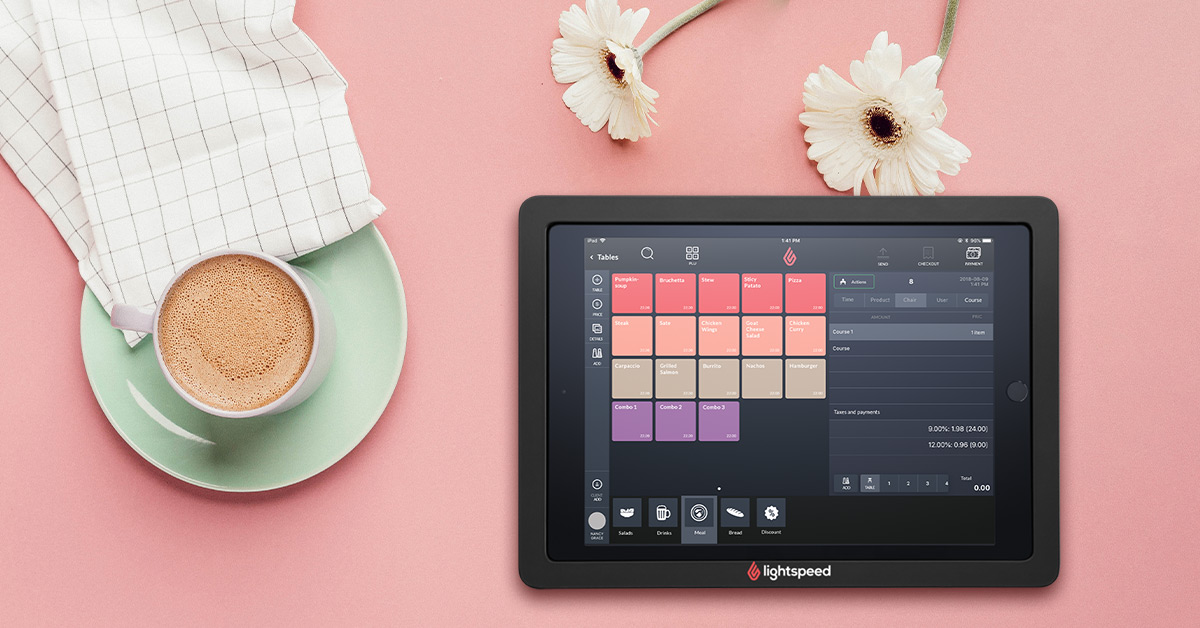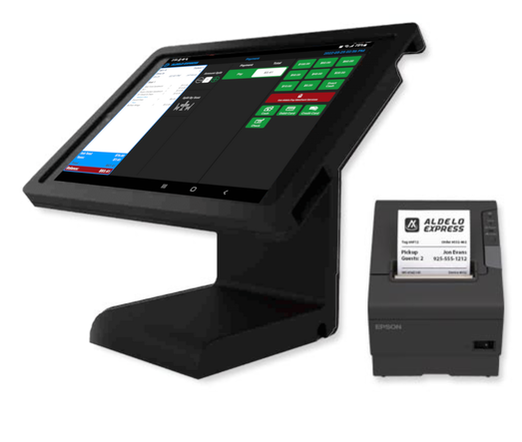Frequently asked questions about Restaurant POS Software
Recognizing the Significance of POS Software in Modern Retail Workflow
In today's retail landscape, the role of POS software has come to be significantly significant. These systems have changed from fundamental sales register to diverse tools that enhance numerous elements of procedures. They not just streamline transactions however likewise provide insights that can form company strategies. Recognizing exactly how these systems influence customer experience and stock management is crucial for any kind of seller looking for to remain affordable. The ramifications of these advancements call for more exploration.
The Development of POS Software: From Purchase Processing to Comprehensive Solutions

Enhancing Client Experience Via Advanced POS Includes

Enhancing Supply Monitoring With Integrated POS Systems
Integrated POS systems play a crucial role in improving supply management by automating processes that commonly needed substantial manual initiative. These systems enable merchants to track supply levels in real time, removing discrepancies that commonly arise from hand-operated supply matters. With attributes such as barcode scanning and automated supply replenishment informs, services can preserve excellent supply degrees without overstocking or stockouts.Furthermore, integrated POS systems help with accurate forecasting by examining historical sales data, permitting merchants to make informed buying choices. This anticipating capability aids services adapt to changing customer demands and seasonal fads a lot more effectively.Additionally, the centralization of inventory information across numerous sales networks enhances presence, allowing sellers to manage their stock more successfully. Eventually, the integration of POS systems right into stock management streamlines operations, lowers human error, and adds to boosted success.
Real-Time Sales Tracking and Coverage for Informed Decision-Making

Accurate inventory management lays the groundwork for efficient sales tracking and reporting. Real-time sales tracking enables sellers to keep track of sales performance as it happens, providing immediate understandings right into client investing in patterns and fads. This capacity permits services to react quickly to changes sought after, maximizing stock levels and reducing overstock or stockouts.Moreover, incorporated POS systems help with the generation of in-depth reports, highlighting essential metrics such as sales by classification, time periods, and individual products. Such reporting abilities encourage retailers to make data-driven decisions, determining effective approaches and areas needing renovation.
The Function of POS Software in Customer Partnership Administration
POS software plays a vital duty in boosting client relationship monitoring by making it possible for retailers to implement tailored advertising methods. By examining customer data, businesses can customize promos and communications to fulfill private choices. Additionally, these systems promote the development of boosted loyalty programs that urge repeat service and enhance consumer interaction.
Personalized Marketing Techniques
As retailers significantly look for to improve customer loyalty and engagement, individualized advertising and marketing approaches have actually become a vital part of effective customer connection monitoring. POS software plays a vital function in this procedure by accumulating and analyzing customer data, making it possible for retailers to tailor advertising and this link marketing initiatives to individual preferences and buying actions. By leveraging insights from purchase backgrounds, sellers can develop targeted promotions and personalized interactions that resonate with consumers, promoting a much deeper link. Furthermore, the assimilation of POS software with consumer partnership monitoring systems permits for smooth monitoring of customer interactions, guaranteeing that advertising approaches remain relevant and timely (Restaurant POS Software). This data-driven technique not just enhances consumer fulfillment however likewise drives sales and urges repeat company, strengthening the store's market setting
Enhanced Commitment Programs
Stores are significantly acknowledging the significance of loyalty programs in cultivating long-lasting customer partnerships and improving overall involvement. POS software plays an essential duty in the advancement and management of these programs, permitting merchants to track customer acquisitions, preferences, and behaviors properly. By leveraging data analytics, businesses can develop customized benefits and motivations that reverberate with private clients, therefore boosting engagement in commitment programs. Furthermore, POS systems make it possible for seamless assimilation with mobile apps and electronic platforms, assisting in easy access to incentives and promotions. This not just boosts client complete satisfaction yet also drives repeat service. Ultimately, POS software encourages sellers to cultivate deeper connections with their customers, changing occasional consumers right into loyal customers via targeted and purposeful engagement methods.
Incorporating POS Systems With E-Commerce Platforms for Omnichannel Success
To accomplish real omnichannel success, seamless combination in between point-of-sale (POS) systems and e-commerce platforms is important. This combination allows sellers to link their inventory administration, making sure that product availability is properly mirrored throughout both online and physical shops. Consumers profit from a natural buying experience, where they can easily switch over in between networks without encountering discrepancies.Furthermore, integrated systems help with real-time data sharing, enabling companies to evaluate customer behavior and choices more properly. This data-driven strategy permits merchants to customize advertising methods and enhance stock levels, ultimately enhancing consumer satisfaction and driving sales.Additionally, the capacity to procedure purchases throughout systems streamlines operations, decreasing the danger of mistakes and enhancing overall performance. As merchants progressively adopt omnichannel approaches, the assimilation of POS systems with ecommerce systems stays an important consider achieving lasting growth and keeping competitive benefit in the dynamic retail landscape.
Future Trends in POS Modern Technology and Their Effect On Retail Operations
As retail operations advance, future patterns in POS technology are readied to reshape the landscape significantly. The rise of cloud-based remedies, developments in mobile POS systems, and the benefits of AI assimilation are among the vital advancements prepared for to improve performance and client experience. These advancements guarantee to streamline processes and foster an extra dynamic retail setting.
Cloud-Based Solutions Increase
With the enhancing reliance on technology, cloud-based POS options are transforming retail operations by using enhanced adaptability and scalability. These systems make it possible for sellers to gain access to real-time information from anywhere, assisting in better decision-making and consumer solution. By leveraging cloud infrastructure, companies can minimize ahead of time prices associated with hardware and software setups while making certain smooth updates and upkeep. Additionally, cloud-based services support multi-location monitoring, permitting stores to synchronize inventory and sales across different outlets easily. This flexibility is important in today's hectic market, where consumer preferences shift quickly. As more merchants embrace these options, they can expect improved operational efficiency and an extra receptive technique to market needs, eventually improving client fulfillment and commitment.
Mobile POS Innovations
The development of retail innovation continues to form procedures, especially with the rise of mobile POS innovations. These systems enable stores to refine transactions anywhere within the store, boosting client interaction try these out and streamlining check out processes. Mobile POS solutions boost stock administration by permitting instant accessibility to stock levels, aiding personnel assist consumers extra effectively. Additionally, they facilitate customized shopping experiences through incorporated client data and loyalty programs. As mobile devices become increasingly innovative, sellers are adopting attributes such as contactless repayments and electronic invoices, in addition maximizing the buying journey. The shift towards mobile POS not just boosts operational performance but likewise aligns with the growing customer choice for benefit, making certain that sellers continue to be competitive in a rapidly progressing market.
AI Integration Benefits
AI combination stands for a transformative leap in POS innovation, using retailers a myriad of benefits that improve functional performance and customer experience. By leveraging maker knowing formulas, stores can analyze buying patterns and maximize stock monitoring, reducing waste and stockouts. Additionally, AI-powered analytics offer individualized advertising and marketing referrals, enabling targeted promotions that increase customer engagement and loyalty. Furthermore, chatbots and online assistants improve customer care, enabling quicker resolution of queries and improving the general shopping experience. Predictive analytics can also anticipate need patterns, allowing review smarter staffing and resource allotment. Ultimately, the integration of AI in POS systems encourages stores to make data-driven choices, promoting an affordable side in an ever-evolving retail landscape.
Often Asked Questions
What Are the Costs Associated With Executing POS Software?
The costs related to executing POS software can include software licensing fees, equipment costs, setup charges, training costs, and recurring upkeep. Each variable adds to the overall financial investment necessary for an effective application.
Just How Can Little Retailers Advantage From POS Systems?
Small merchants can gain from POS systems through enhanced deal performance, streamlined stock administration, and boosted consumer insights. These systems enable much better decision-making, eventually leading to enhanced sales and client satisfaction in open markets.
What Hardware Is Needed for a POS System?
A normal POS system calls for essential hardware components, including a touchscreen monitor, cash cabinet, barcode scanner, receipt printer, and payment terminal. These elements collaborate to facilitate efficient transaction processing and supply monitoring for stores.

Can POS Software Be Custom-made for Particular Retail Needs?
POS software can without a doubt be personalized to fulfill certain retail needs. Restaurant POS Software. This adaptability enables businesses to customize features, user interfaces, and reporting devices, improving functional performance and supplying a much more individualized experience for both personnel and clients
Exactly How Protected Is Customer Information in POS Systems?
The protection of client data in POS systems differs widely. Several systems carry out encryption, protected accessibility controls, and regular updates, but susceptabilities can still exist, demanding continuous alertness and positive steps from stores to secure sensitive details.